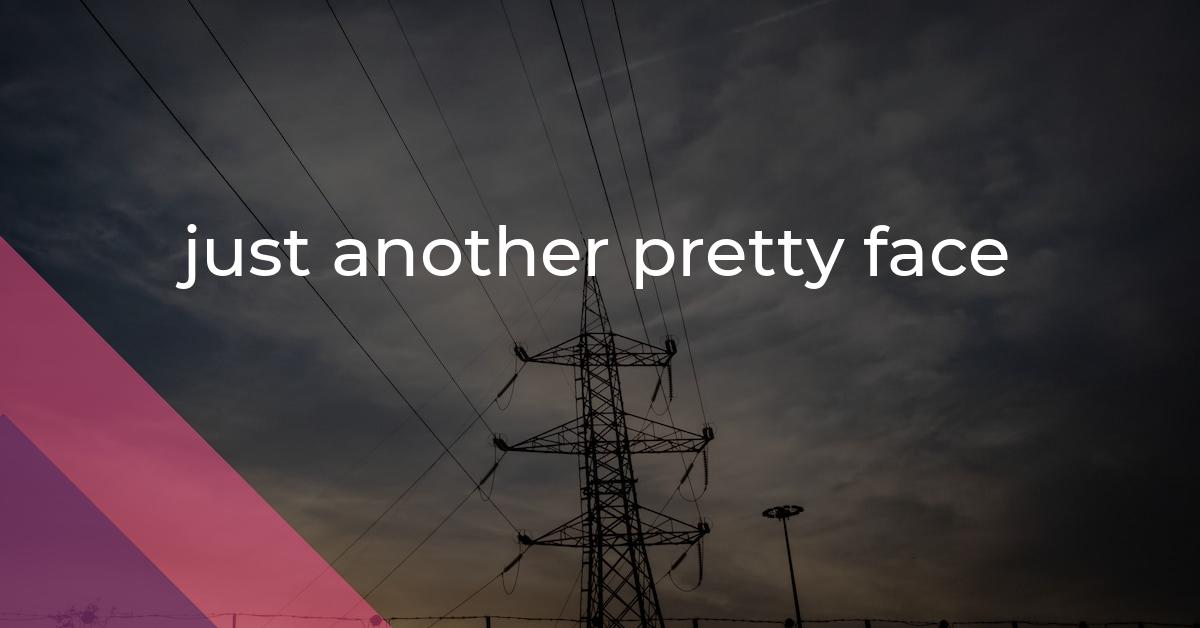just another pretty face: Idiom Meaning and Origin
What does ‘just another pretty face’ mean?
The idiom "just another pretty face" is used to describe someone who is attractive but lacks intelligence, skills, or substance. It implies that the person's appearance is their main or only attribute, often used in a dismissive or derogatory manner.

Idiom Explorer
An idiom meaning someone has an extremely unattractive or unpleasant face, often used to give a brutally honest description of someone's appearance.
The idiom "good looker" refers to a person who is physically attractive or visually pleasing.
The idiom "game face" refers to the serious or determined expression someone puts on when they are ready to face a challenge or compete. It signifies the mental preparedness and focus needed to perform well in a game or competition.
The idiom "fresh-faced" refers to someone who has a youthful, healthy appearance, often with smooth and unlined skin.
The idiom "for show" means doing something only to give the appearance of it, without any real substance or intention behind it.
The idiom "flannelled fool" refers to a person who appears to be smart or important due to their outward appearance or status, but lacks intelligence or substance. The term "flanneled" symbolizes a privileged background, while "fool" denotes their lack of competence.
The idiom "fine feathers make fine birds" means that a person's appearance or external qualities can deceive others into thinking they possess admirable qualities or skills. However, this may not always be the case, as true value lies within a person rather than their outward appearance.
An idiom meaning someone is not very intelligent or mentally unstable.
The idiom "face value" means to accept something as it appears, without questioning or doubting its truth or meaning. It refers to evaluating something based solely on its outward appearance or initial impression.
The Unseen Depths
Throughout my research, I've gathered a bunch of facts about the idiom "just another pretty face." This phrase is commonly used in the English language, especially in the United States. It's used to describe someone, usually a woman, who may seem attractive but lacks depth or substance beyond their looks. Basically, it means that this person doesn't have anything special going for them.
The origin of this idiom can be traced back to the early 20th century. It emerged as a colloquial expression that reflects societal ideas about beauty and intelligence. It's a way of saying that being good-looking doesn't automatically make you important or talented.
In everyday conversations and in writing, like articles, blogs, and social media posts, people use "just another pretty face" a lot. It's a phrase that's well-known and widely understood, thanks to its presence in popular culture. You'll hear it in movies, TV shows, and songs.
Now, let's talk about how "just another pretty face" relates to some other idioms. One related idiom is "butter face." This phrase describes a person who has an attractive body but an unattractive face. It's a bit more specific than "just another pretty face" but still touches on the idea that looks aren't everything.
Another related idiom is "have a face like the back end of a bus." This idiom is used to describe someone with a very unattractive face. It's a little harsh, but it gets the point across that this person is not pleasing to look at.
A more positive idiom related to "just another pretty face" is "good looker." This phrase is used to describe someone who is very attractive. Unlike "just another pretty face," "good looker" implies that the person actually has something going for them.
Lastly, we have the idiom "fresh-faced." This phrase describes someone who looks young and healthy. It's often used to talk about someone who has a youthful appearance, usually in a positive way.
The idiom "just another pretty face" serves as a reminder that beauty alone is not enough. It criticizes the superficiality of society and encourages us not to judge people solely based on their appearance. It reminds us to look beyond the surface and consider a person's intellect, talent, and character.
By exploring the origins, usage, and meaning of this idiom, we gain a deeper understanding of society's values and perceptions about beauty and intelligence. It's important to remember that different people may interpret and apply this idiom in various ways, leading to a wide range of analysis and discussion.
Example usage
Examples of how the idiom "just another pretty face" can be used in a sentence:
- She is not just another pretty face, she is also a talented dancer.
- Don't underestimate him, he's not just another pretty face, he's a brilliant engineer.
- I thought he was just another pretty face, but his insightful ideas proved me wrong.
More "Appearance" idioms



